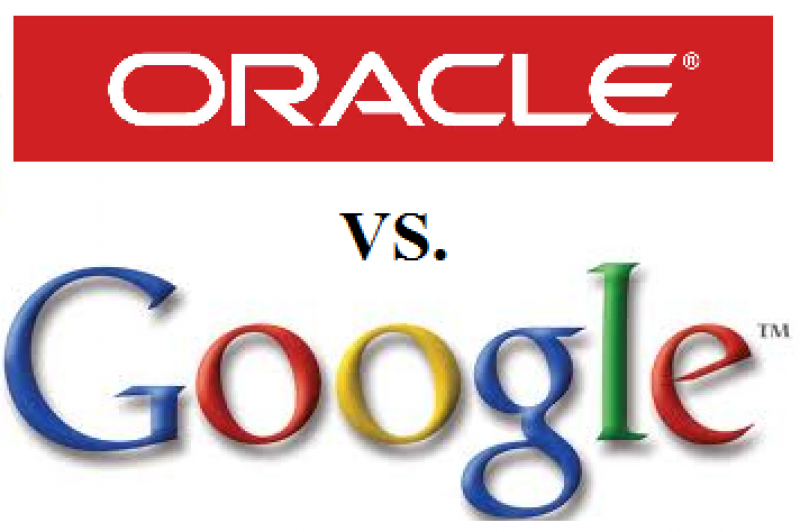

I wanted to comment on the response yesterday in the Oracle v. Google case being played out in the United States Court of Appeals for the Federal Circuit. This appeal is important to me because it will not just set the tone for how APIs are designed, deployed and managed, but also because I worked with the EFF to craft the Amicus Brief, and signed on as one of the computer scientists in opposition of API copyright--making the response a huge blow to me personally.
The case is far from settled, so I will refrain from using hyperbole when I describe the situation, but will echo the EFF’s statement that “the implications of this decision are significant, and dangerous”. For me, it doesn’t change the conversation, it just re-enforces what I already believe, and hopefully it will do the same amongst API providers across the space.
Steve Willmott of 3Scale and I read the writing on the wall when we started API Commons last year, that a political line was being drawn by the Oracle v Google appeal, and would not just continue to play out in the courts, but also within the heart of the API economy, and that we needed to collectively stand up and push back--API Commons is a back-burn strategy for the wildfire that Oracle has set.
API Commons basically declares that API definitions are ultimately copyrightable or licensable as code, depending on your viewpoint, all you do is hang your definition in the API Commons, and provide a reference to the license that matters to you, whether it licensed as content (CC) or software (FSF) is your call. Giving every API provider a torch, and the ability to participate in setting the back-burn, taking a stance in the Oracle v Google wildfire that has been set by Oracle, that could potentially burn down all of our collective resources.
In my opinion, Oracle v Google is just one of many battles that will occur within this new, virtual layer of our economy, and will ultimately define whether a company's approach to delivering digital services is more about governance and monetization (SOA), or about access and innovation (API)—exposing heart of the SOA v API debate.
Changing my metaphor from forest fire being set by Oracle, to seeing the API economy as an engine—Oracle is replacing the engine oil with glue, and then enabling any company to sell you a solvent + oil to make it better. If the API economy is our baby, Oracle is introducing smoke and alcohol into the womb, which will stunt the growth of the space, and impact not just the rest of us, but also stupidly Oracle’s own revenue. Ok I lied, I got all fired up and shifted into hyperbolic gear! ;-) Vrooom!!
I spend a lot of time trying to help the enterprise understand what makes APIs work versus their latest SOA approach, and often times I find explaining this difference is akin to teaching dark matter and physics, or the concept of evolution to evangelical christians in rural america. The enterprise is blind to many of the elements that make APIs work, with all the vital elements lost in the quest for profit and control within the industries they operate in.
Generating a machine readable definition of your API, with accompanying licensing model, is just going to be one more lever we will have to adjust when dialing in the political settings for our APIs, which sucks big-time, but ultimately is doable with the leadership demonstrated by API providers across startups, SMS, enterprise, government, and non governmental organizations when they submit their API definitions to the API Commons, accompanied with a liberal or publicly available license.
As new API discovery models emerge, and API ratings models evolve, the license of your API definition will set the tone for the conversation you have with your API consumers. As the usage of machine readable API definitions grows, and API discovery and rating becomes automated, your API licensing will be the difference in whether or not your API even shows up in a search result, or not.
You will have to excuse my brief rant, in response to the Oracle v Google appeal. I currently have the flu after being in Germany for API Days Berlin, and finding it difficult to formulate a coherent, lengthy response. Much like the overall debate, I think I will have to break the response from the United States Court of Appeals for the Federal Circuit down, publish as bite-size chunks that will stimulate discussion via my API Voice blog over time, and evolve my own understanding--refining my arguments.
The discussion around API copyright is far from over. I don’t have much hope for the results of the fair use discussion, that will continue as part of the case, but I do have hope when it comes to API providers stepping up to take a stance on the subject. Additionally, Oracle can count on me being the "Johnny Fucking Appleseed of API Definitions", convincing companies, organizations and governments of all sizes to publish their API definitions to the commons. Then also being as prolific in designing and defining the next generation of APIs ahead of the enterprise, as I am in writing on my blog(s), making sure that the best API design patterns are openly licensed and put into the commons for everyone to use--before your slow, bloated enteprise can even understand what the hell is going on.
Game on! Fuck you Oracle!
